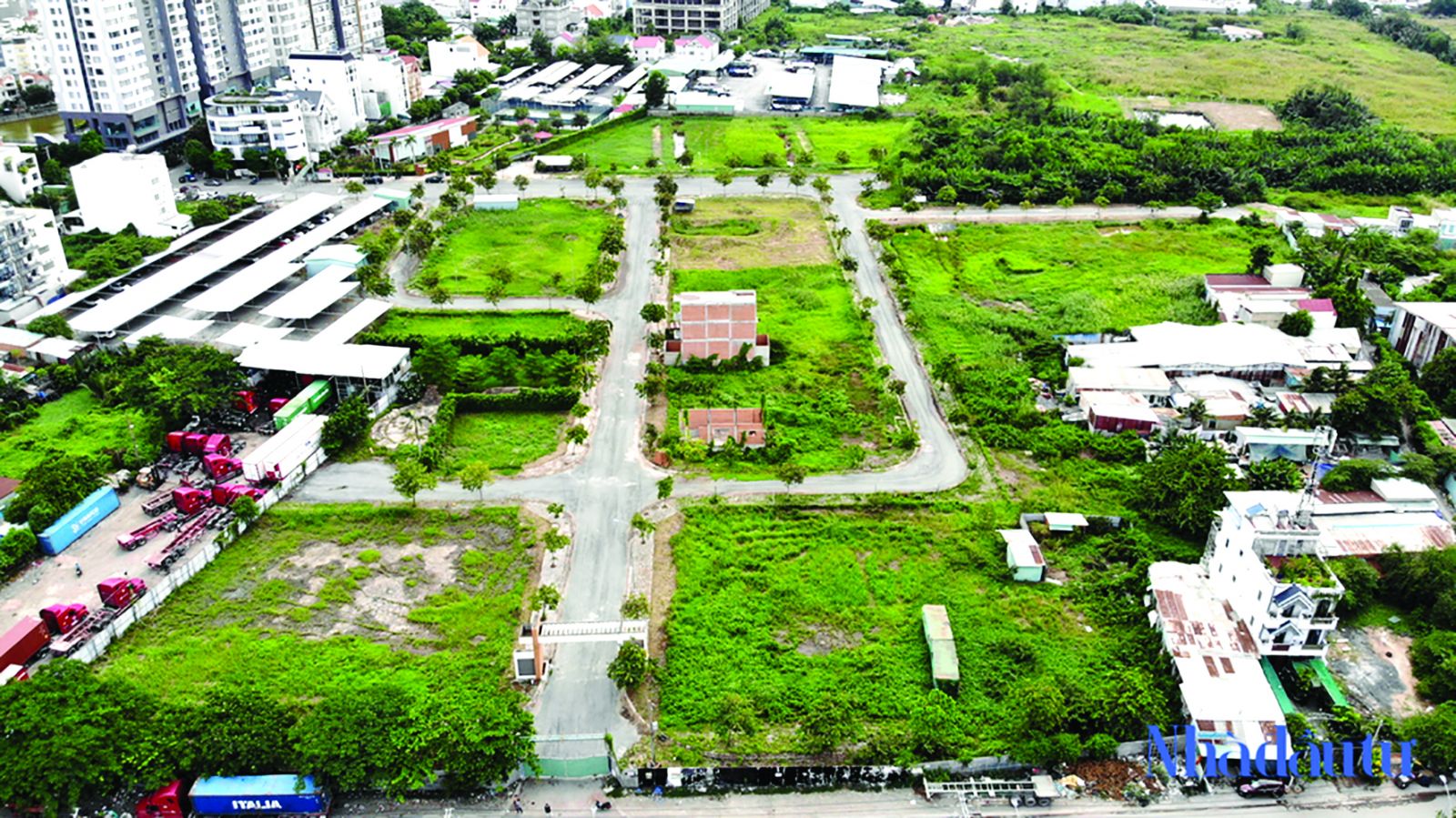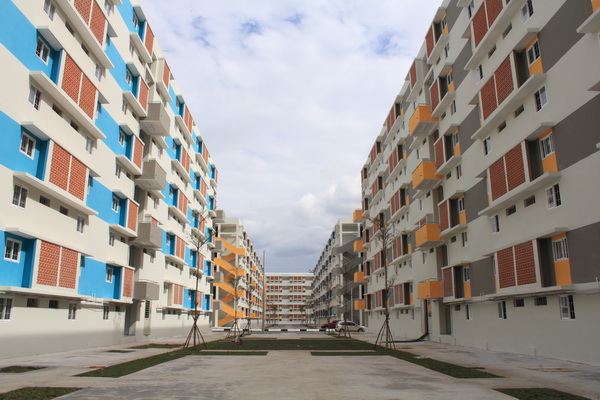Removing obstacles to commercial housing construction
Many real estate projects in Ho Chi Minh City are currently facing numerous financial and legal obstacles, leading to delays in implementation or awaiting approval for investment proposals.
According to a report sent to the Ho Chi Minh City People's Committee by the Ho Chi Minh City Department of Planning and Investment on the handling of land-use investment projects, there are currently 62 projects that do not meet the conditions as regulated by the laws and 55 projects awaiting approval for investment proposals.

Causes of the obstacles
Since the issuance of the Prime Minister's dispatch No. 342/TTg-V.I in 2017, which temporarily suspended the procedures for selling assets on land and transferring land-use rights in accordance with the Prime Minister's Decision No. 09/20017/QD-TTg, 62 real estate projects, commercial housing, and resettlement housing projects in Ho Chi Minh City that use land from state-owned land have run into difficulties. These examples concern the reorganization and management of state assets, the relocation of polluting workshops, or the conversion of state-owned firms into joint-stock corporations.
Furthermore, some projects confront challenges as a result of modifying the 1/2000 zoning plan in order to adopt preferential policies and get investment approval. This includes obtaining investor approval for social housing and commercial housing projects, as well as fulfilling the developer's obligation for a commercial housing project of less than 10 hectares, which requires allocating 20% of the land area for the development of social housing through compensation rather than providing the land.
For example, despite receiving investment permission over ten years ago, Anh Tuan Investment Joint Stock Company's Lotus Residence project (District 7, Ho Chi Minh City) is today experiencing financial liabilities that hinder purchasers from erecting buildings.
According to Mr. Duong Tuan Tu, CEO of Anh Tuan Company, the project developer borrowed from several sources in order to accomplish the project. However, the purchasers of the property are not permitted to construct on it. This scenario has irritated land buyers, and there have even been claims of fraud leveled against the developer. The company has repeatedly submitted documents to Ho Chi Minh City's Department of Natural Resources and Environment, requesting the implementation of the project's financial obligations, and has contacted other departments and agencies in the hope of resolving the obstacles, but no timely solutions have been implemented.
These cases have not yet completed the required procedures in accordance with legal norms, necessitating a review of their legal elements. As a result, building and the issuing of land use cost and additional land use cost certificates, as well as the issuance of certificates (pink books) to developers and purchasers, have been temporarily suspended. This has complicated matters for both developers and buyers in these ventures.
Solutions to remove obstacles
Mr. Le Hoang Chau, Chairman of the Ho Chi Minh City Real Estate Association (HoREA), remarked that in the last three years, the number of real estate projects authorized for investment procedures in Ho Chi Minh City has been exceptionally low. Especially, 7 projects were accepted for investment proposals in 2021, 2 projects in 2022, and just 2 more in the first half of 2023. Thus, in the two and a half years since the Investment Law 2020 went into force, just 11 projects in Ho Chi Minh City have completed this procedure.

Many firms are unable to complete the investment clearance procedure because rules require that 100% of the land for new projects be secured, or because of issues with canal, ditch, or road access. "The current impediments stem primarily from Decree 31/2021, which governs the Investment Law." As a result, Mr. Chau advocated amending Decree 31/2021 as soon as possible in order to remove legal obstacles and hasten project completion.
HoREA further urges that the "Government Task Force" remove obstacles for specific firms and representative projects as soon as possible in order to set a precedent for dealing with similar issues and develop trust among businesses and the real estate market. Furthermore, the non-criminalization of economic and civil relationships, as well as the comprehensive recovery of state assets lost to corruption, should be considered, with the goal of holding related businesses accountable for fulfilling financial obligations, including any additional financial obligations (if applicable) to the state budget as determined by the authorized state agency. This contributes to economic development and increased home supply in the market, as well as ensuring project implementation.
Mr. Su Ngoc Khuong, Senior Director of Investment Advisory at Savills Vietnam, concurs that the government must establish a favorable atmosphere for enterprises and guarantee a legal framework in order to speed project development. This will help firms lower input costs while increasing consumer advantages.
Furthermore, foreign enterprises entering the market can only begin project execution after paying for land usage and getting building permissions. As a result, legal processes are critical and should be thoroughly studied before advancing with investments.








